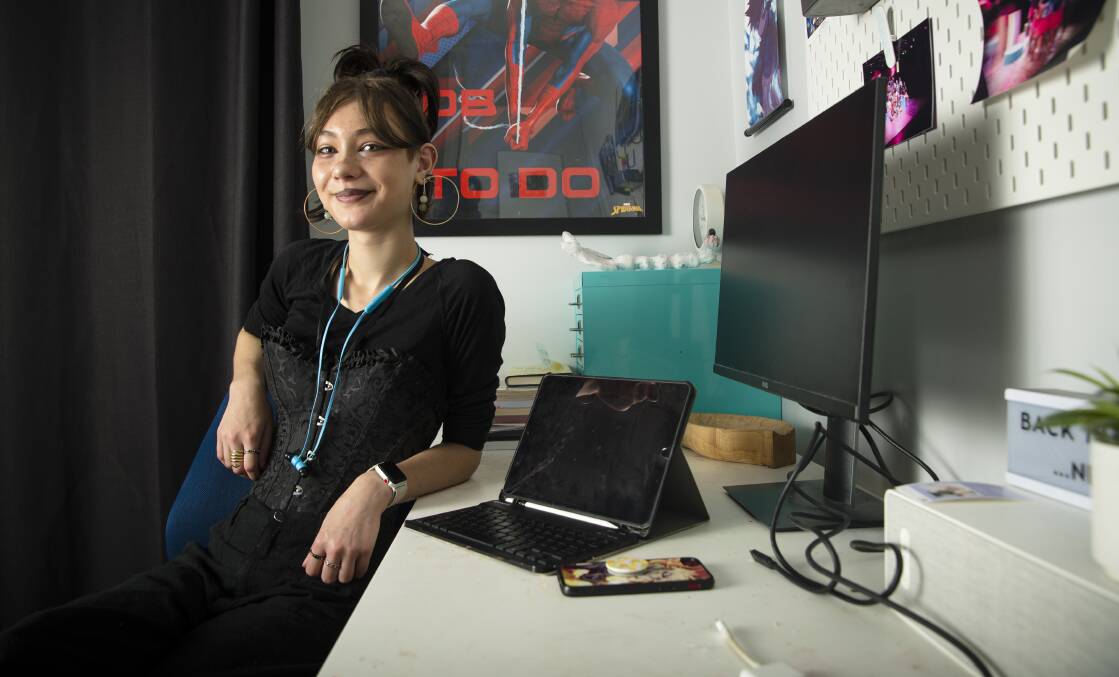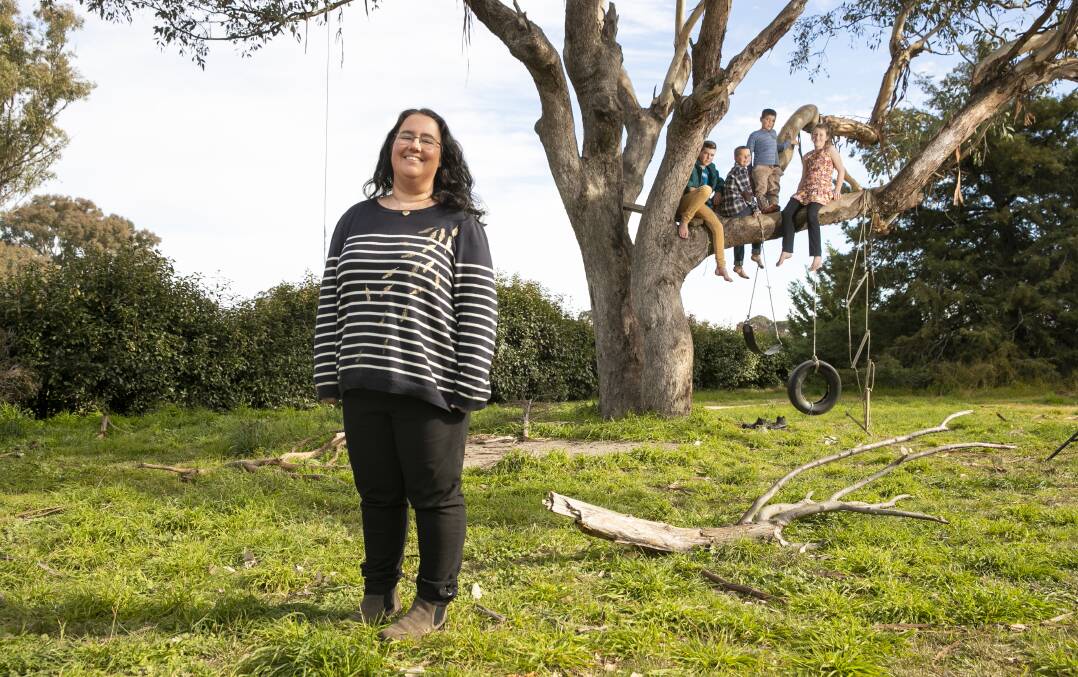
Alexi Clark Mitchell was one of 240 Canberra students to withdraw from mainstream schools and register for home education this year.
The year 10 student was having a hard time at a small independent school and so made the switch to full-time home education.
"I didn't really click with many people and I just wasn't enjoying it, wasn't feeling happy there and so we finally decided that it would be better for me to not be at that school anymore."
Alexi devised a timetable of workshops with their grandparents and parents and kept up extra-curricular drama lessons.
"I do Zoom economics workshops with my grandfather and Zoom biology workshops with my grandma and then in-person geography lessons and maths lessons from my other grandmother," they said.
"I missed being around people all day and that's been a bit of a struggle for me during this process, but I felt more lonely at school than I did by myself at home."
Next year they intend to enrol in a public college where they can specialise in their areas of interest and study alongside friends.
Alexi's experience is becoming more common as all states and territories witness a post-pandemic boom in the number of home-educated students.
'Tremendous spike'
At the time of the February 2022 school census, there were 413 students being home educated in the ACT. As of December 1, this figure had climbed about 20 per cent to 502 students, according to figures from the Education Directorate.
There have been 240 approvals to start home education since the beginning of 2022. Of these, 230 were new registrations and 10 were returning registrations.
Of the 230 new registrations, 81 were described by their family as having special needs. Eleven students were trialling a return to school.
The numbers of registered home education students has been climbing steadily in the ACT, but large jumps were recorded between 2020 and 2021 and between February and December 2022.
Australian National University PhD candidate Selena Guest, who is conducting research on home education, said based on best estimates, the number of home-educated students across the nation was approaching 50,000, up drastically from about 35,000 the same time last year.
"At the moment, we're going through a tremendous spike nationally," she said.
Elsewhere in the world, the numbers of home-educated children peaked during the COVID pandemic and have started to decline, but Australia's data is doing the opposite, Ms Guest said.
"It's the teacher shortages and resourcing not being able to meet people's needs," she said.
"People are struggling. We certainly see a lot of children with disabilities coming out to homeschooling. We're seeing a lot of school refusers, there's a lot of mental health challenges coming out.
"We've got really desperate families who are seeking alternatives."
School refugees
Home Education Association of Australia president Janelle Barnes said the organisation's helplines were receiving many calls from distressed parents trying to find out if home education was a viable option for their children.
"Often they'll become sort of school refugees, where they've left school because the school system wasn't meeting their needs," she said.
Some parents switched to home education because of bullying that had gone unaddressed or because of a lack of support for neurodiversity or other disabilities.
Ms Barnes said many people got a small taste of home education when schools shut their campuses and went online during the pandemic and found it was beneficial for their children.
"I also think that there is also a degree of people who have never really trusted the government and trust them even less now."
While the home education population was once thought to be largely religious families or those following alternate lifestyles, there is some emerging evidence that this is changing.
"I expected when I became a home educator that I was going to meet a lot more kooky people, but I met people who were more like me: university-educated, quite mainstream," Ms Barnes said.
Making it work
The internet has made home education much easier than it once was, with a myriad of learning resources designed specifically for home educators and social networks facilitating for meet ups and excursions.
Ms Barnes, who began home educating her two daughters in 2020, said they are constantly learning. For instance, they will keep a mental running total of the grocery bill as they do the weekly food shop.
"They call it home education, but a whole lot of it's not done at home. The world is our classroom."
Ms Guest said it did require a significant sacrifice from home educators to make it work.
"It's mostly women and they're interrupting career trajectories, they're giving up income, which has the flow on effect of giving up superannuation and all of those things further down the track."

Back to school
It's common for students to go back into mainstream schooling after a period of home education. Ms Barnes' eldest daughter received a music scholarship and so enrolled in school for year 7 after 18 months at home.
The ACT Education Directorate data showed that 156 students left home education since the beginning of 2022.
"Most commonly, these students have gone on to enrol in an ACT public or non-government school," a directorate spokesperson said.
"Others have moved interstate and enrolled in a school or interstate home education program, and some are no longer of compulsory age for education."
Ms Barnes said many students enrol in TAFE as a pathway to university studies.
"The general feedback from home educated graduates is that they often do really well at uni because they are used to having a lot more self direction in their learning and being a lot more involved in planning the learning as they get older and not just doing as they're told by their teachers."
Alexi is looking forward to returning to mainstream school next year.
"I'm glad to be going into a space where I know I'm taking the subjects I like and also have friends there as well, which will be quite good."
We've made it a whole lot easier for you to have your say. Our new comment platform requires only one log-in to access articles and to join the discussion on The Canberra Times website. Find out how to register so you can enjoy civil, friendly and engaging discussions. See our moderation policy here.







